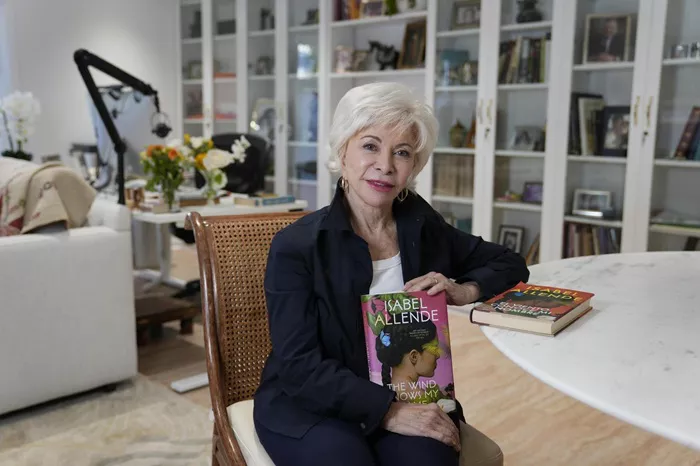Acclaimed Chilean-American author Isabel Allende returns with My Name is Emilia del Valle, a new novel that interweaves personal identity, romance, and Chile’s complex history with her signature storytelling flair. At 83, Allende shows no signs of slowing down, continuing her decades-long literary exploration of Latin American life, memory, and magic.
The novel follows Emilia del Valle, a bold, independent woman born under unusual circumstances in San Francisco. Her mother, Molly Walsh, a nun, is expelled from her convent after becoming pregnant by Gonzalo Andres del Valle, a wealthy Chilean visitor. Refused by her lover, Molly later marries a Mexican schoolteacher, raising Emilia in the United States. Emilia grows up to become a writer of dime novels and eventually a journalist, ultimately traveling to Chile to report on the country’s 1891 civil war.
In Santiago, Emilia reunites with her biological father, now a repentant man devoted to religion. Before his death, he acknowledges Emilia as his daughter and bequeaths her a piece of land in the Mapuche forest region of southern Chile. The journey that follows introduces Emilia—and the reader—to the natural and cultural richness of Chile, particularly the traditions of the indigenous Mapuche people.
Allende, whose debut novel The House of the Spirits (1982) became a landmark of Latin American literature, draws deeply from her personal experiences of exile, dictatorship, and political upheaval. Her latest work is no exception, reflecting the themes of loss, longing, and identity that have shaped both her life and literature.
In vivid passages, Allende offers lyrical descriptions of Chile’s landscape and people. “From every corner of Chile one can feel the majestic presence of the Andes Mountains,” she writes. “The spirit of Chile is defined by water … from the sea, blue lakes, raging rivers, waterfalls, springs, persistent rains, snow, and tears.”
She also delves into the country’s contradictions. “The same Chileans who so loved the beauty of poetry were also quite bloody-minded,” one character notes, highlighting a national paradox.
Born in Peru and raised in Chile, Allende has lived most of her adult life in exile. She refers to Chile as her “invented country,” a reference that also serves as the title of her 2003 memoir. Her emotional connection to her homeland, compounded by her forced departure during the Pinochet dictatorship, has deeply influenced her writing. Her cousin, President Salvador Allende, was overthrown and died in the 1973 military coup.
In My Name is Emilia del Valle, Allende examines the entrenched power of the Chilean oligarchy and its reliance on the military to preserve elite interests—an issue that continues to spark debate and protest in contemporary Chile. The novel underscores the enduring relevance of these struggles and the voices demanding justice and constitutional reform.
Despite the heavy historical themes, Allende infuses the novel with personal warmth and Latin passion, characteristics that have become hallmarks of her work. Emilia’s adventures, romances, and resilience mirror Allende’s own life journey, making the fictional narrative all the more intimate.
Known for her exuberant spirit, Allende has spoken candidly about aging and love. “I have been in love all my life—with different men, of course,” she once remarked in an interview. “I want love, passion, and romance, like any teenager… We humans are sexual and sentimental creatures to the very end.”
In 2019, Allende married her third husband, Roger Cukras, at the age of 77. Her first husband, Willie Gordon, built a Chilean-style home in San Francisco, aptly named The House of Spirits, after her breakthrough novel.
Despite her colorful personality, Allende maintains a strict writing discipline. She begins work on each new novel on January 8 and writes up to ten hours a day, six days a week. “I get up at six, put on full makeup and high heels, then go upstairs to work—even if I won’t see a soul. I dress up for myself,” she says.
With more than twenty books to her name, Allende continues to be one of the most influential voices in Latin American literature. Her next project, she reveals, will be a memoir. “I like to write fiction because I’m a very good liar,” she jokes, embodying the spirit of a storyteller whose truth often lies between the lines.

